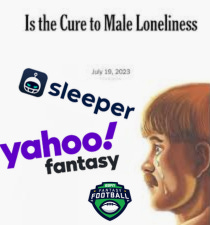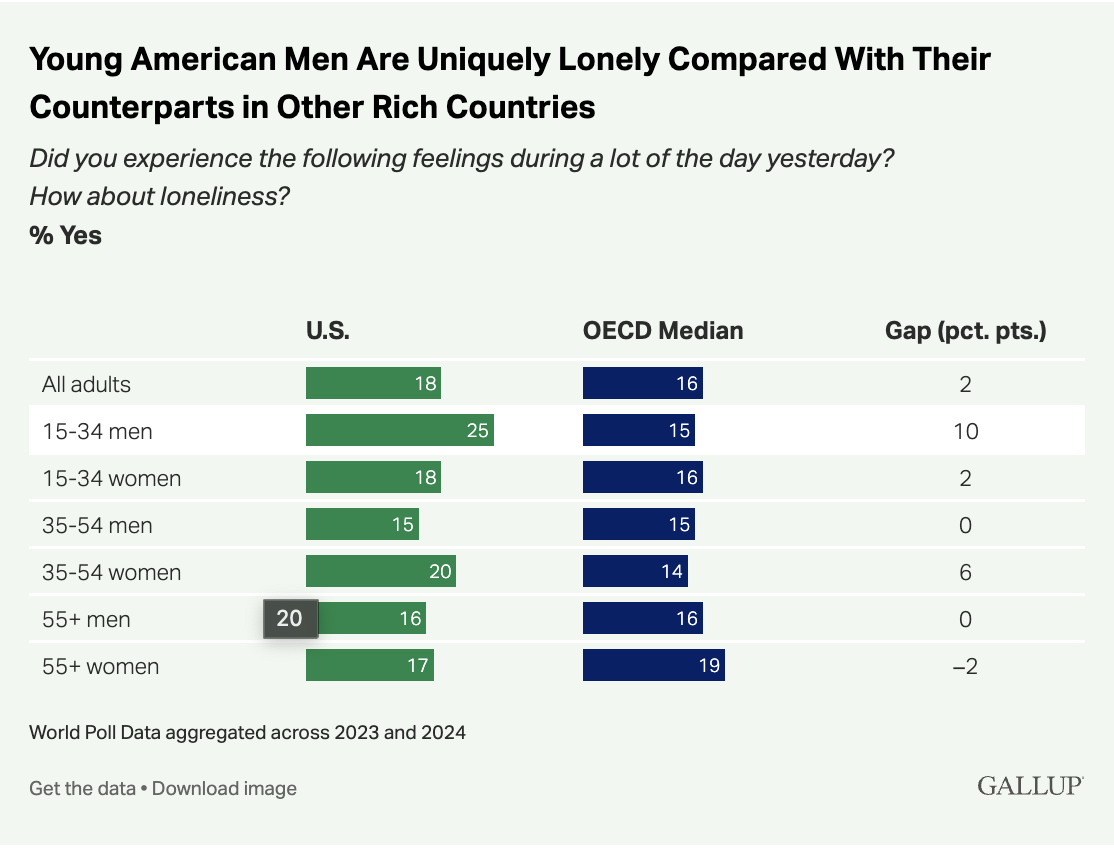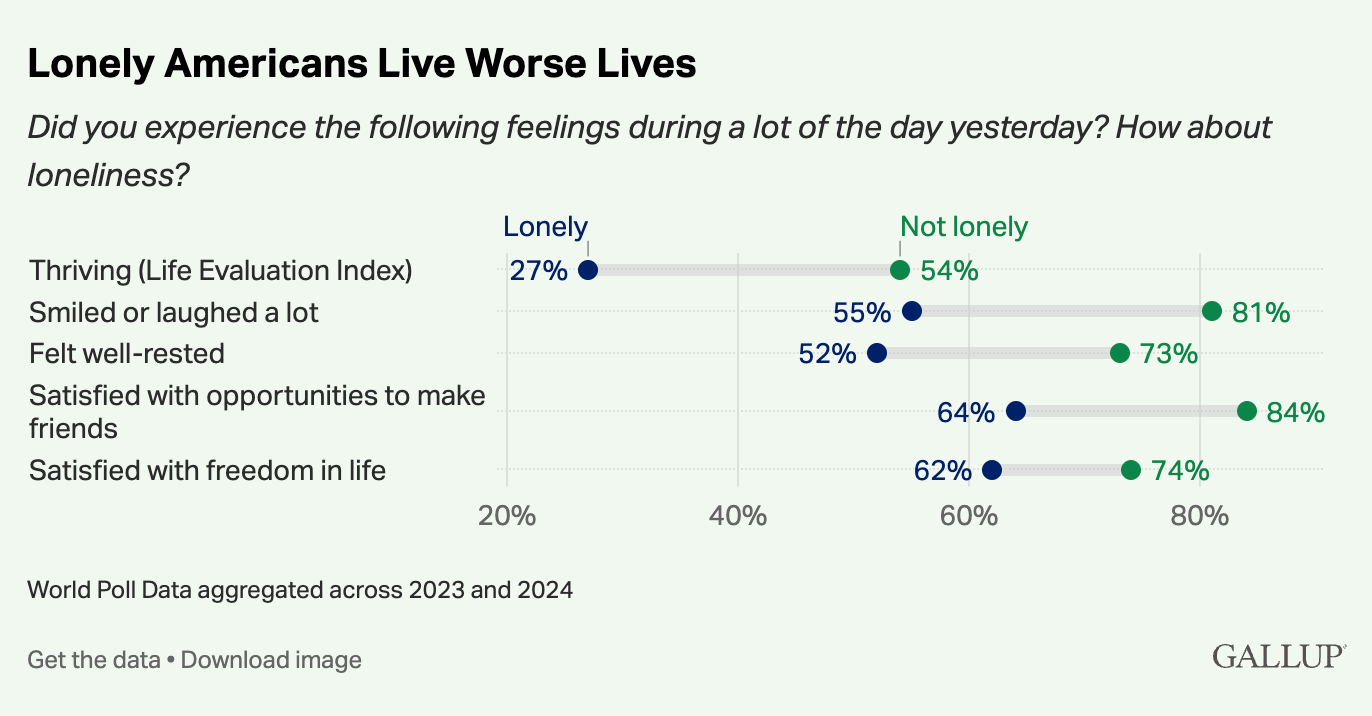Real Friends, Fantasy League: Is Fantasy Football the Antidote to Male Loneliness?
Fantasy football is essential infrastructure for adult friendship in a country where time zones, jobs, and politics keep pulling us apart.
Some people think football is a matter of life and death. I assure you, it's much more serious than that. —Bill Shankly
Above: Every meme has meaning and every joke has truth.
I didn’t realize how many friendships of mine were running on fumes until my calendar filled up, I accidentally became important at work, and my ZIP code changed.
The slow fade is quiet and efficient: neither fight nor drama—just one more “we should catch up soon” or “let's get drinks next time you're in town” that never lands.
And then, one nippy September day chills your bones and, as F. Scott Fitzgerald wisely noted, “Life starts all over again when it gets crisp in the fall.”
Football returns, the draft room lights up, and the group chat wakes from its long hibernation. Suddenly we return to ritual, reasons for ribaldry, and running jokes once more.
When watching my three teams put up a subpar effort this past weekend, I realized that fantasy football is no more than social tech for grown-ups.
The interface is the waiver wire and the real output is a durable cadence with the people we love.
Fantasy Football Is the Great Connector
We romanticize sports as the great unifier. As a lifelong, emotionally overinvested Notre Dame fan, this is nothing but the truth.
Fantasy is that idea made practical—built for geography’s inconvenience and adulthood’s constraints. Interestingly, last year fantasy platform Yahoo took a closer look at the connections fostered by fantasy football. In a nationally representative survey:
Close friends and family were the two most common fantasy opponents
Among players who compete against friends, 83% say fantasy helps them keep in touch with people they wouldn’t otherwise see
Over half say they probably wouldn’t remain friends with some league-mates without it
Most striking: 81% say fantasy helps them maintain friendships across differences—politics, background, generation
Among those who play with family, 63% say it’s one of the most important things they do for bonding, and 83% say it builds relationships across generations
That maps to my personal experience. Leagues are semi-private group chats with scaffolding and structure.
The calendar chimes every week. Trades force conversations. Sunday is a standing appointment—no calendar Jenga or phone tag required
Connection in a Flat, Mobile Age
The macroscopic backdrop is important here. The country became “smaller and flatter” because of both flights and FaceTime, but our real lives spread out. If the old model of friendship relied on proximity—locker rooms, dorm rooms, rec leagues, local watering holes—the new model needs repeatable digital rituals to keep bonds alive when everyone lives three states away.
Fantasy does this elegantly: a shared scoreboard plus light-touch, (mostly) low-stakes decisions that nudge us into contact. The weak ties get stronger; the strong ties don’t atrophy.
Research on fantasy consistently lists “social connections” among the primary positives—alongside staying engaged with the sport and other personal benefits.
Put simply, the interface is football, the feature is friendship.
The Fantasy Sports & Gaming Association estimates 62.5 million people in the U.S. and Canada play fantasy sports, with football as the dominant game (~79% of fantasy participants).
Edison Research pegs fantasy football players in the U.S. at ~29.2 million in 2022—big enough to turn “our league” into a mainstream social graph.
The Digital Locker Room (That Actually Works)
Why does this stick when regular group chats fade?
Structure without homework. You’re not sitting through a tedious, two-hour call, but setting a lineup and firing off a meme. The shared object does the social heavy lifting
Framed competition. Friendly rivalry gives everyone a safe, renewable reason to talk. It’s hard to “just check in.” It’s easy to roast someone’s RB2
Seasonality. A beginning, middle, and end—draft weekend, trade deadline, playoffs—creates anniversary moments. Adult friendships need those
Roles and lore. Over years, the league builds its own mythology: the forever-rebuilder, the trade shark, the jester, the guy impossible to do a deal with, the autodraft doofus who somehow wins. Story is glue.
Sociologists see similar patterns: men (especially) report bonding with friends through fantasy participation, often via the “smack talk” performative layer that makes the league feel like a locker room from when its participants were young, sweaty, and spry.
Friendship as Counterprogramming to Loneliness
Zoom out once more. One in four U.S. men ages 15–34 say they felt “a lot of loneliness” yesterday, according to Gallup data from 2023–2024—higher than the national average and higher than young men in other wealthy countries. That’s the backdrop fantasy quietly, stoutly pushes against.
Even broader polling shows that the costs of loneliness compound. Lonely Americans are less likely to say they’re thriving, well-rested, satisfied with their freedom, or satisfied with opportunities to make friends.
Architecture and systems nearly always beat willpower. Because of this, giving friendship a calendar, a ritual, and a scoreboard is not trivial, but vital.
Fantasy is hardly a panacea; after all, those only exist in fantasy, not reality (pun very much intended). It is, however, a low-friction, high-frequency touchpoint that makes the difference between “we should hang soon” and “see you Sunday.”
For younger guys—who data suggests are carrying a heavier loneliness load—that matters.
For the rest of us juggling kids, careers, and aging parents, it’s a friendship autopilot that still requires a pilot.
What Endures (and How to Make It Endure)
If we strip the chrome off the apps, what keeps leagues alive year after year?
A recurring draft weekend. Ritual beats spontaneity. Put it on the calendar and protect it
A playful penalty. Last-place punishments transform the season from content and camaraderie to community theater
Invites across generations. Bring in brothers, cousins, dads, and the new in-law. Given the state of our union socially, politically, and demographically, this is more important than ever
An open lane for difference. The league is where people who don’t vote alike still talk all season. That’s a civic lifeline
Do all this long enough and the league becomes a sort of time capsule. You’ll remember years not by moves in the S&P, but by the year Ron went defeated, Pep lost the trophy, and Andrew ran a beer mile.
Sure, the standings matter (speaking as a former champion), but the stories are what actually last.
From Boys to Men to Friends
I wrote before about the movement from performative boyhood to durable friendship.
Fantasy football sits right in that seam.
Yes, it scratches the competitive itch. Yes, it’s jock cosplay for desk jockeys. But the real win is simpler: a scheduled excuse to keep choosing one another in a world designed to keep you buying and crying, online and out of the world.
In a culture allergic to commitment, the league is commitment disguised as fun.
So draft your team. But also draft a plan—set the league rules, schedule the check-ins, name the trophy, keep the lore. Whether you realize it or not, you’re building the rails your friendships will run on for another year.
And when Sunday hits and the chat starts chirping, remember what’s actually happening beneath the fantasy: we’re still here, still laughing, still in touch.
And that's really all that matters.
Per my about page, White Noise is a work of experimentation. I view it as a sort of thinking aloud, a stress testing of my nascent ideas. Through it, I hope to sharpen my opinions against the whetstone of other people’s feedback, commentary, and input.
If you want to discuss any of the ideas or musings mentioned above or have any books, papers, or links that you think would be interesting to share on a future edition of White Noise, please reach out to me by replying to this email or following me on Twitter X.
With sincere gratitude,
Tom






What a wonderful take on friendship. Hey, whatever works.
Not to brag, but I am 2-0 so far in the season.